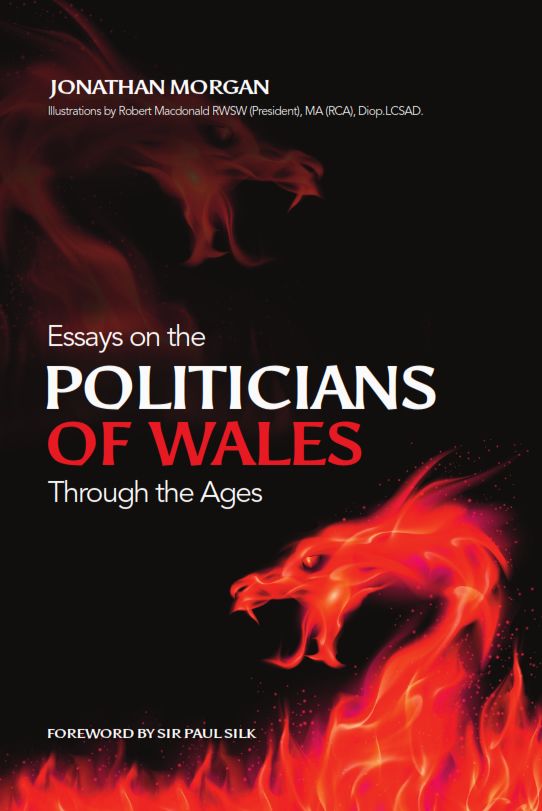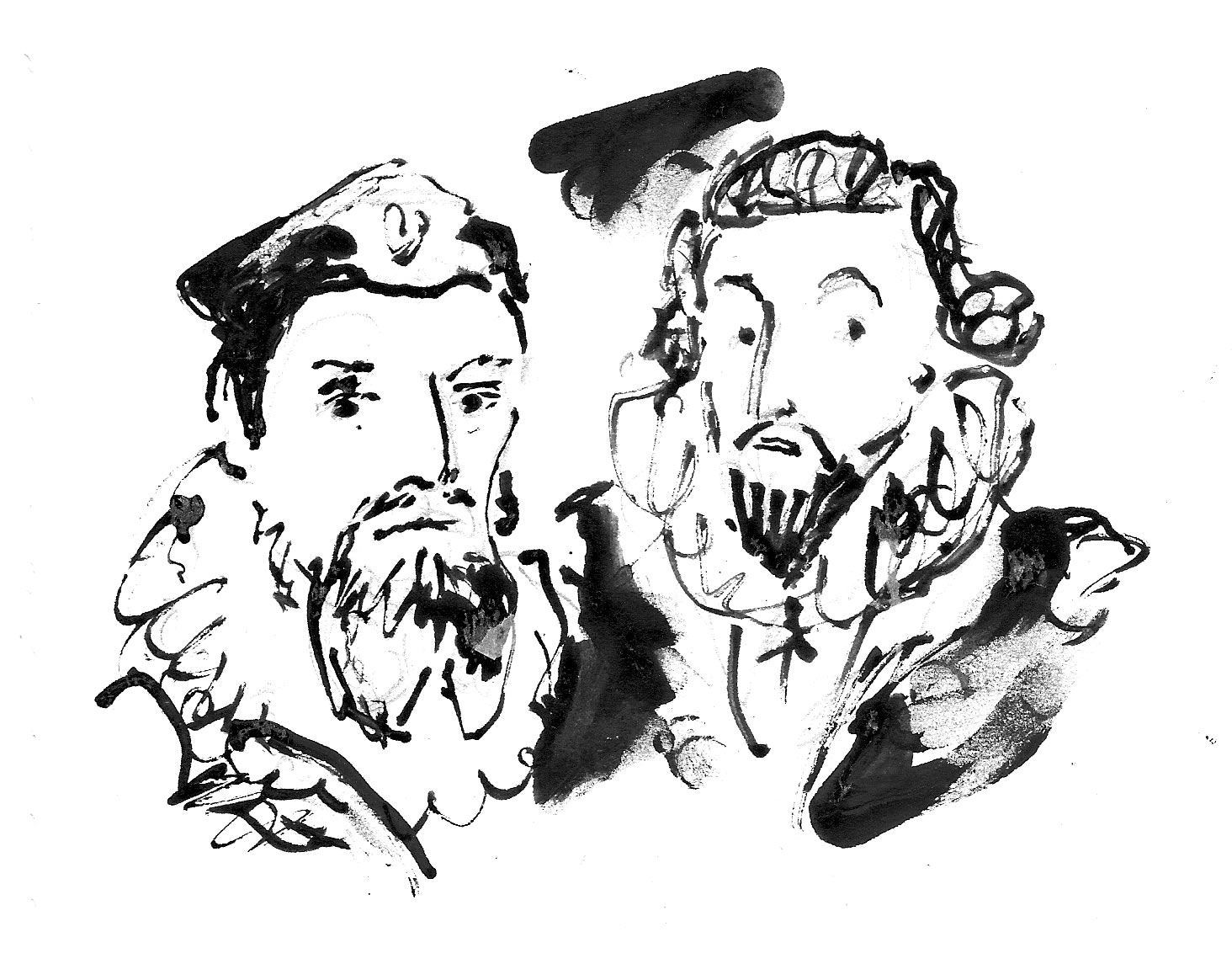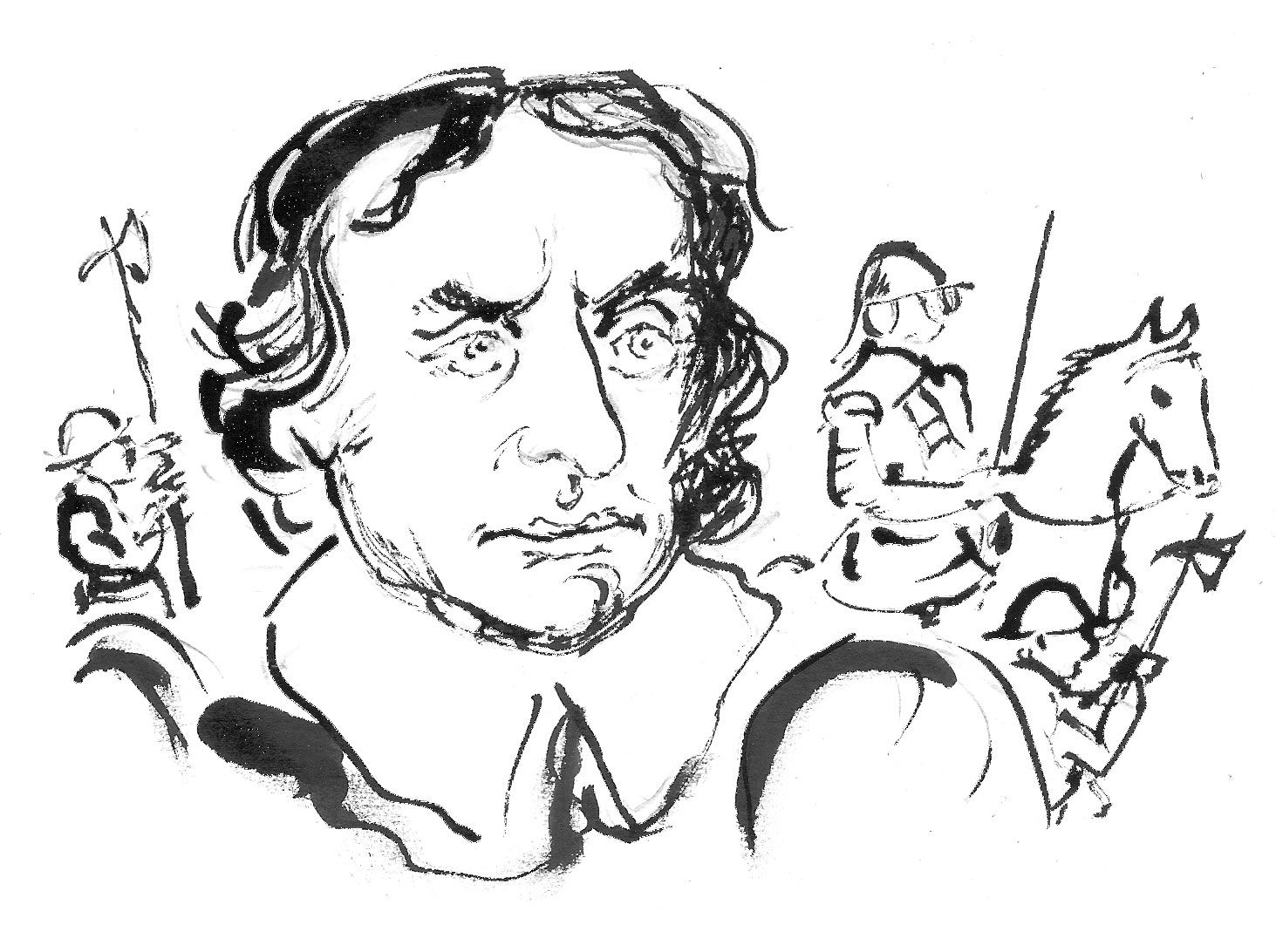THE CECILS AND QUEEN ELIZABETH I
One historian said that if you went to any Welsh market town in Elizabethan times, you would see women in the market who looked like Elizabeth 1, auburn hair and sharp features. Her looks reflected many of the characteristics of a Welsh woman of that time. There is no doubt that Elizabeth had a penchant for her Welsh subjects.
The Cecils statesman came from a family typical of the new governing classes which rose to power under the Tudors - canny, ambitious and energetic. Their grandfather David, the youngest son of a poor Welsh squire left his home, a small, grey manor house buried in the remote green hills of the Wales Hereford border to follow Henry Tudor and his campaign for the crown. When he became King, Henry rewarded David Cecil by making him a Yeoman of the Guard. This was the foundation of the family fortunes. David raised enough money to buy a property near Stamford in Northamptonshire, where he distinguished himself enough to become mayor and a Member of Parliament. David's son Richard further consolidated the family fortune and was made a groom to the Privy Chamber. William, his elder son born in 1520, showed himself unusually clever and hard working. After a short period as Court Page and some time at Grantham Grammar School, he went up at the age of 14 to St John's College, Cambridge.
From the first, he was attracted by political life and when he left Cambridge, he joined the Inns of Court to learn the laws of the land. He became learned in the classics and also philosophy and was a firm but moderate protestant. His fortunes continued to prosper; he married Mildred Cooke who was the daughter of Sir Anthony Cooke, governor to the young Prince Edward. Henry VIII took him into his service and when he died, and the Duke of Somerset was made Lord Protector he appointed William to act as his personal Master of Requests. He navigated his way through the reigns of Edward VI and Mary without putting a foot wrong. When Elizabeth came to the throne, she knew him well enough to appoint him as one of her chief councillors. He always believed in moderation, in order, in peace and compromise. He also believed in balance between parties at home and between forms of religious enthusiasm. He did not think even the Queen was above the law. They never really disagreed and she always fell back on William Cecil's advice. He was firmly in favour of Mary, Queen of Scots execution, although the Queen was very ambivalent over it.
In 1571 Elizabeth created him Lord Burghley and a year later, Knight of the Garter and Lord Treasurer. His was a sober house with a magnificent library full of books on astronomy and geography. He read in bed in English, French, Italian, Greek and Latin. He was fairly indifferent to music and poetry. His garden also became famous. It was filled with rare plants of interest to botanists. He loved beauty which was demonstrated in the planning of his terraces and fountains and avenues.
On his death bed he could look back at his numerous achievements. He never fell out with the Queen, although he found both her favourites, Leicester and Essex difficult to deal with. She relied on him to the end, and when he died, his son Robert took over as the leading councillor in the realm. When Robert died, he had made the Cecils one of the first families in England.
However, to go back to Queen Elizabeth and her coterie of Welsh families: Dr John Dee she often relied upon in her exploration of astronomy and theology. He had a huge library on the Thames near Henley and was often in her favour. Sir John Herbert, who spoke Welsh was the 2nd Secretary of State, Sir Thomas Parry was her accountant, and Blanche Parry who was related to the Earls of Pembroke and owned land in Breconshire was one of her ladies of the bedchamber and who also possibly taught Elizabeth some Welsh. Robert Cecil as previously mentioned, the 1st Earl of Salisbury, was also a statesman, capable and dedicated. He was courteous and modest and grave, although his private character was more suspect. A reckless gambler and suspected of many love affairs. He'd grown up very short, with a crooked back and an awkward way of walking. He hated war and thought it ruinous. When Burghley was still alive, Robert, his son became a sort of unofficial Secretary of State. He did not get on with Essex, but it was Essex who came a cropper, and not Cecil.
His father, just before he died, told him 'to tend in all thy actions in the state, to shun foreign wars and seditions, labour with thy Prince's honour, to reconcile her to all her enemies so far as they stand with honour and safety, and thirdly to make sure to secure a successor to the Queen'. He always had to cope with the Queen, but like his father, he did not govern all things with her. She remained the ultimate authority. Elizabeth had a power to inspire devotion. Robert Cecil loved her better than any. It was Robert who with his ability to negotiate shrewdly wrought the changeover to James I after Elizabeth's death. He was not really at home in James's court but continued to serve the new King loyally. Together with Queen Elizabeth, they represent the wisdom of the age. England was well governed, so long as they were in full power. England was transformed from a mediaeval to a modern nation. Both men were basically reconcilers who kept a delicate balance in the Kingdom in virtually all realms. They were relied upon to support one of our greatest Queens. What has been called one of England's greatest political families originated, like the Tudors, from Wales. It is interesting in recent times, that Lord Ned Cecil bought Old Gwernyfed House in Breconshire and lived there for a time.
They never lost their original identity in Wales.
DR JOHN DEE
We should not forget the controversial Dr John Dee.
Dr John Dee was a mathematician, astronomer, astrologer, teacher, occultist and alchemist.
He was the court astronomer and adviser to Queen Elizabeth I. His father was Roland Dee, of Welsh descent. His surname Dee reflects the Welsh 'du', (black) and his grandfather was Bedo Ddu of Nantygroes, Pilleth in Radnorshire. He claimed to descend from Rhodri the Great, King of Wales. He had a lot of contact with Elizabeth and was very keen on establishing the British Empire. He is said to have told the Queen that she was one of the 'old Brits' and therefore it should be called the British Empire.
In his 'Title Royal' of 1580 he invented a claim that Madoc ap Owain Gwynedd had discovered America intending thereby to boost England's claim to the New World over that of Spain's. He also asserted that Brutus of Britain and King Arthur as well as Madoc had conquered lands in the Americas so that their heir Elizabeth I had a prior claim there.
He was an intense Christian and believed that numbers were the basis of all things and the key to knowledge. His goal was to help bring forth a unified world religion through the healing of the breach of the healing of the Roman Catholic Churches. He was an extraordinary man, influential at our time in court and had Elizabeth's ear. He had a renowned library at Mortlake but it was vandalised when he was on the European continent and unfortunately he ended up poor and almost bankrupt.







